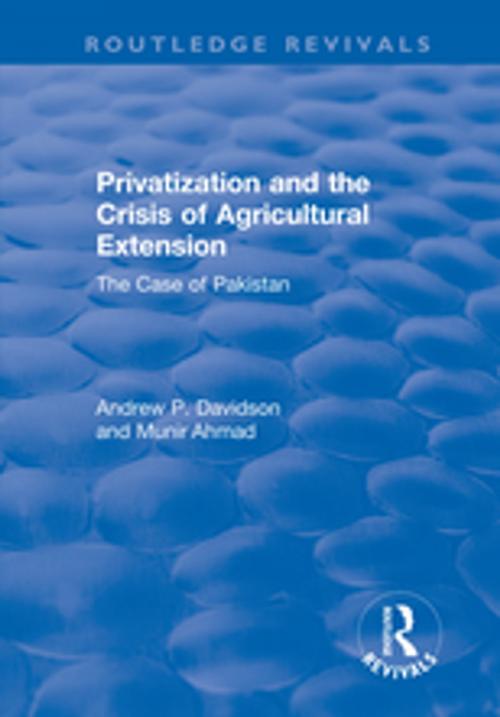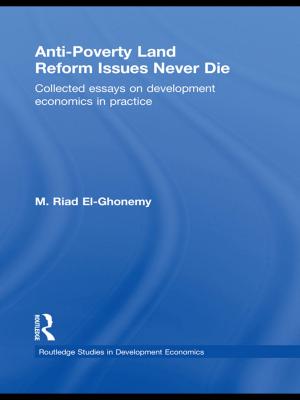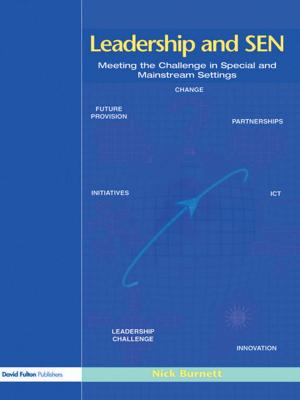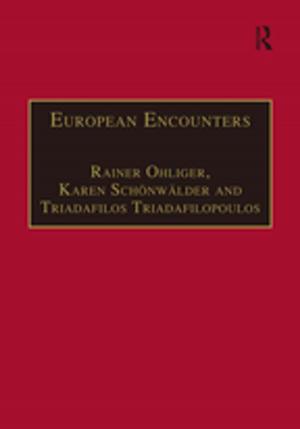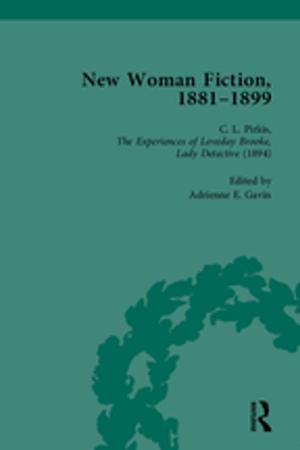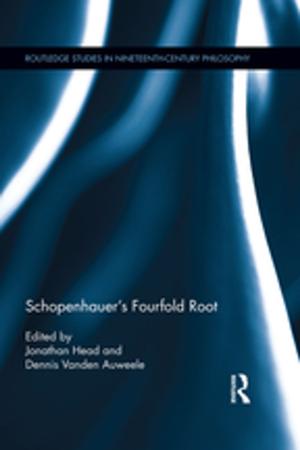Privatization and the Crisis of Agricultural Extension: The Case of Pakistan
The Case of Pakistan
Nonfiction, Social & Cultural Studies, Social Science| Author: | Ahmed Munir, Andrew Davidson | ISBN: | 9781351759205 |
| Publisher: | Taylor and Francis | Publication: | November 1, 2017 |
| Imprint: | Routledge | Language: | English |
| Author: | Ahmed Munir, Andrew Davidson |
| ISBN: | 9781351759205 |
| Publisher: | Taylor and Francis |
| Publication: | November 1, 2017 |
| Imprint: | Routledge |
| Language: | English |
This title was first published in 2003. he public sector plays a dominant international role in the provision of agricultural extension and services. This role has been the subject of much debate. Some argue for extension's privatization, claiming that a market driven system provides the most rational and efficient means of information delivery. Based on extensive empirical research from the Punjab (Pakistan), this volume examines the comparative effectiveness of public and private extension services from the perspective of farmers. It also focuses on information from extension agents about their respective organizations and work environments. In so doing, the book expands and elaborates on the practical considerations of privatization and information delivery. It then broadens out into a discussion of alternative means of extension delivery, focusing on participatory approaches, education theory and pluralism.
This title was first published in 2003. he public sector plays a dominant international role in the provision of agricultural extension and services. This role has been the subject of much debate. Some argue for extension's privatization, claiming that a market driven system provides the most rational and efficient means of information delivery. Based on extensive empirical research from the Punjab (Pakistan), this volume examines the comparative effectiveness of public and private extension services from the perspective of farmers. It also focuses on information from extension agents about their respective organizations and work environments. In so doing, the book expands and elaborates on the practical considerations of privatization and information delivery. It then broadens out into a discussion of alternative means of extension delivery, focusing on participatory approaches, education theory and pluralism.
